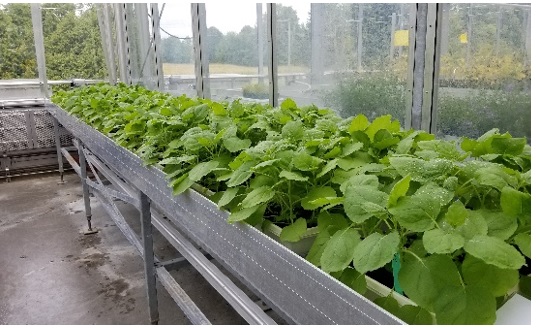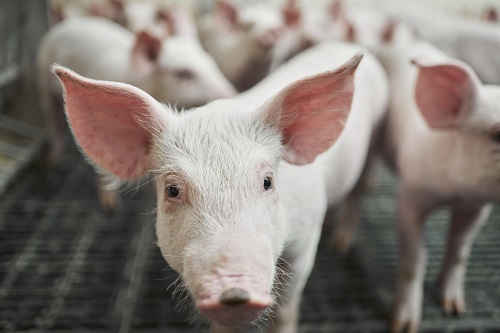Set up an interview
Media Relations
Agriculture and Agri-Food Canada
1-866-345-7972
aafc.mediarelations-relationsmedias.aac@agr.gc.ca
One of the most widely known bacterial pathogens in the agri-food industry, E. coli O157:H7 (Escherichia coli), can be found in the intestines of infected livestock and humans, causing adverse human health effects and even death in some cases. Shedding of the bacteria in the animal’s environment is also a safety concern for the agri-food system, as E. coli from an infected animal’s manure can contaminate water, soil, and even meat. Mitigating the risk of contamination is critical to the continued sustainability of the agri-food sector, and Agriculture and Agri-Food Canada (AAFC) research scientists have recently discovered an antibody that is poised to help treat E. coli infection in livestock.
AAFC research scientist Dr. Rima Menassa, at the London Research and Development Centre, identified an antibody – a protein used by the immune system to recognize and respond to foreign bacteria and viruses – that can be used to treat E. coli infection when given to livestock using an edible, plant-based system. This development in edible therapeutics, in a two-year partnership with PlantForm Corporation, could provide an industry breakthrough for safeguarding livestock and human health against E. coli.
“The goal is to administer the antibodies orally to livestock through a course of treatment called immune therapy,” says Dr. Menassa. “The antibodies then work to neutralize pathogenic E. coli bacteria in animals who already have the pathogen in their system.”
- Dr. Rima Menassa, Genomics and Biotechnology Research Scientist, Agriculture and Agri-Food Canada
The treatment, which has been submitted for patent approval, caught the attention of a third party, PlantForm Corporation, who received funding to study the antibody and its effects on mice, with the intent to establish dosage requirements and to further understand the antibody’s behaviour during digestion.
“Veterinary pathologist Dr. Patti Kiser, from the department of pathology at Western University, is conducting the study to determine if the antibody can prevent E. coli colonization in mice and/or prevent E. coli shedding from colonized mice,” says Dr. Menassa. “The aim is to establish a baseline for the minimum dosage requirement for efficacy. The more antibodies that survive the digestive tract in the animal, the smaller the dosage required to achieve the desired outcomes of preventing colonization and shedding.”
The outcome of the study and baseline dosage requirement could present a path to commercialization of edible therapeutic treatments, says Dr. Menassa, which are more cost-effective than traditional purified and injectable treatments.
“Feeding the antibody directly to livestock using a plant-based feed additive, rather than through a purified, injected formula, will have cost-related benefits for the industry,” she says. “This is because purifying and formulating a treatment of this kind could make up to 80-90% of the total cost of the treatment itself and the goal is to avoid that by administering the treatment through feed.”
In the plant-based feed additive, cell walls of plant matter can protect the antibody during digestion. This helps the antibodies reach the gut, where they bind to E. coli bacteria and can prevent further colonization of the pathogen in the digestive tract. The fewer antibodies needed to reach the desired effect, the better.
While the team awaits its patent, the department recently published three papers on the study. AAFC’s first, second and third papers can be viewed online at Frontiers in Plant Science. #ScienceGrowsOn
Key Discoveries/Benefits:
- Developed an antibody for application as a plant-based edible therapeutic that, when added to feed, could be administered to pigs to help prevent further colonization of the E. coli pathogen in the animal and reduce shedding in its environment
- This discovery could help reduce risks to human health and safety by reducing potential contamination of E. coli in meat and the agri-food system
- Interest in the antibody as part of an edible therapeutic program has a resulted in funding approved for in-lab studies of mice to develop a baseline treatment model
Photo gallery


